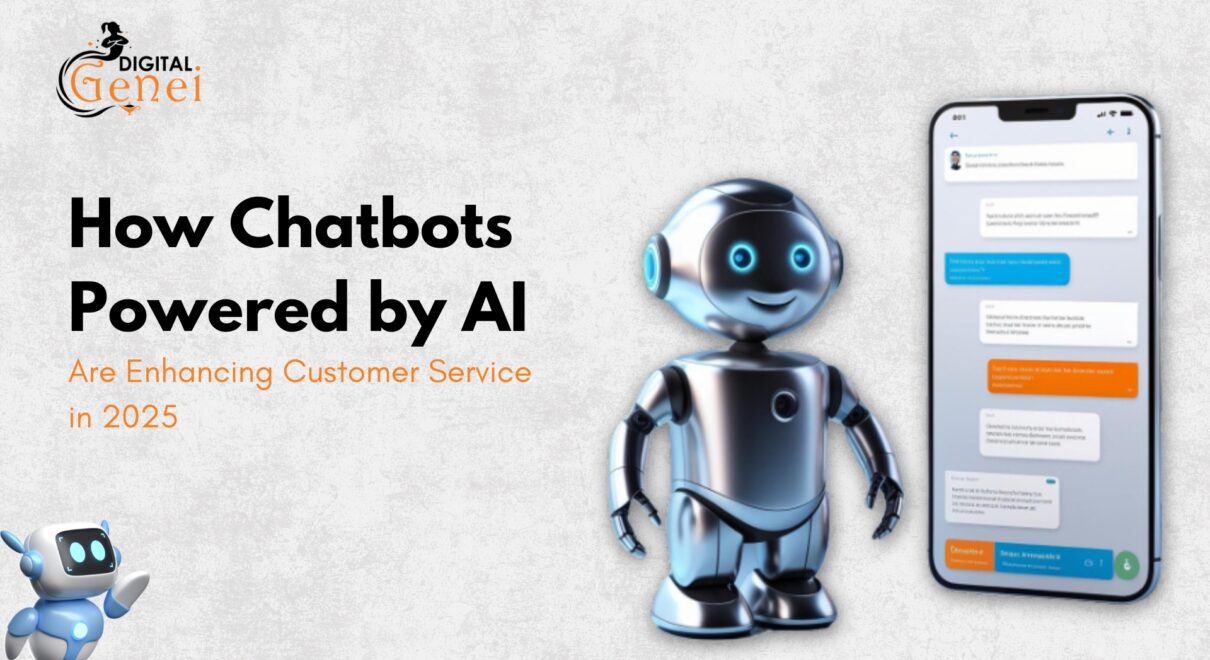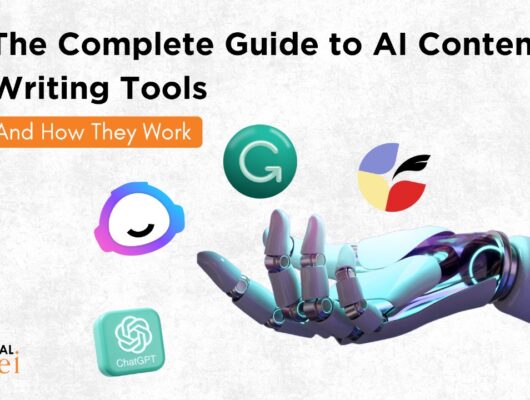Can a chatbot replace human customer service, or is it just a convenient illusion?
In today’s fast-paced digital world, customer service has become an important distinction for businesses of all kinds. Consumers anticipate timely, individualized, and effective assistance, and not living up to these standards can seriously harm your company’s reputation and financial performance.
However, managing a team of customer service representatives may be costly and time-consuming, especially for small and medium-sized businesses. The advancement of artificial intelligence (AI) has brought about a new era of customer care solutions.
One of the most fascinating innovations in this field is the AI chatbot. AI chatbots can use machine learning and natural language processing to address a range of customer issues and provide personalized, 24/7 assistance. This enables your employees to focus on more complex tasks.
This extensive guide will cover Future Chatbot Customer Service and the advantages of employing an AI chatbot for your customer support requirements.
What is AI in Customer Service?
Artificial Intelligence (AI) in customer service is the application of technologies such as generative AI, machine learning, and natural language processing (NLP) to help companies automate ticketing triage, streamline processes, and support agents.
AI tools for customer service can include:
- Conversation management with AI chatbots and virtual agents
- AI-enhanced knowledge bases to boost self-help experience
- Predictive analytics to help spot customers at risk of leaving
- Sentiment analysis to gauge customer feelings during interactions
- Speech recognition for voice support
- Augmented and Virtual Reality for interactive experiences
- Knowledge base tools to quickly find answers
- Conversation summaries to keep things efficient and organize
The Advantages of AI Chatbots for Customer Service
There are several advantages to incorporating an AI chatbot into your customer service strategy, such as:
Improved Efficiency:
AI chatbots can manage a large number of consumer inquiries at once, offering prompt answers and allowing your support team to concentrate on more difficult problems.
24/7 Availability:
AI chatbots are available 24/7, unlike human support representatives, so your clients can get the help they require whenever they need it.
Consistent and Personalized Responses:
AI chatbots can be taught to respond to a variety of consumer inquiries in a precise, reliable, and tailored manner, guaranteeing a smooth and satisfying experience.
Cost Savings:
AI chatbots may significantly reduce the need for human customer support representatives by automating common client questions, which will save your company a lot of money.
Scalability:
An AI chatbot may simply scale to manage a growing volume of customer inquiries as your company expands, negating the need to hire more employees.
Continuous Improvement:
AI chatbots can learn and grow over time, utilizing interactions and input from customers to expand their expertise and offer better service in the future.
The Future of Chatbots in Customer Service
So, what can we expect from the future of chatbots in customer service? The following are some significant changes and trends to be aware of:
-
Advanced Natural Language Processing (NLP)
Chatbots of the future will have much more advanced natural language processing skills. More human-like interactions will be possible because they will comprehend context, nuances, and user emotions. Customers will therefore have more seamless and natural-sounding chatbot interactions.
-
Multi-Modal Capabilities
Text-based interactions won’t be the only way chatbots communicate. Voice, video, and even augmented reality (AR) interfaces will be integrated with them. The experience is more adaptable and versatile since customers can select the communication method that best suits them.
-
Seamless Integration with Human Agents
Human agents and chatbots will work together seamlessly. While human agents will concentrate on complicated problems that call for empathy and nuanced problem-solving, they will handle routine questions and tasks.
-
Proactive Customer Support
Chatbots will become more proactive in detecting and resolving client concerns before they become more severe. Chatbots can predict user wants and provide prompt support by evaluating user behavior and data.
-
Cross-Channel Consistency
Chatbots will ensure uniformity throughout all interactions with customers. Customers who engage with your brand through social media, mobile apps, or your website will always get correct and consistent information.
-
Enhanced Security
Security will be a top priority. Strong security elements will be incorporated into chatbots to safeguard client information and stop fraud. This is especially crucial as chatbots handle sensitive information.
-
Improved Analytics and Insights
A deeper understanding of consumer preferences and behavior will be possible with advanced analytics. Companies can utilize this information to improve their product offers and marketing plans.
-
Emotional Intelligence
Chatbots will become emotionally intelligent, which will enable them to relate to clients and offer emotional assistance when required. This will be especially helpful in fields like mental health and healthcare.
Conclusion
Chatbots in customer service have a bright and hopeful future. Chatbots will become increasingly important in improving consumer experiences as technology develops.
They will become more proactive, adaptable, and human-like, solving client problems before they occur. In addition to saving time and money, companies that use this game-changing technology will develop closer, stronger bonds with their clients.
Chatbots are undoubtedly here to stay, and their potential for innovation in the customer service industry is boundless. You can put your brand at the forefront of customer service excellence in the digital era by keeping up with industry trends and using chatbot solutions that support your company’s goals.




